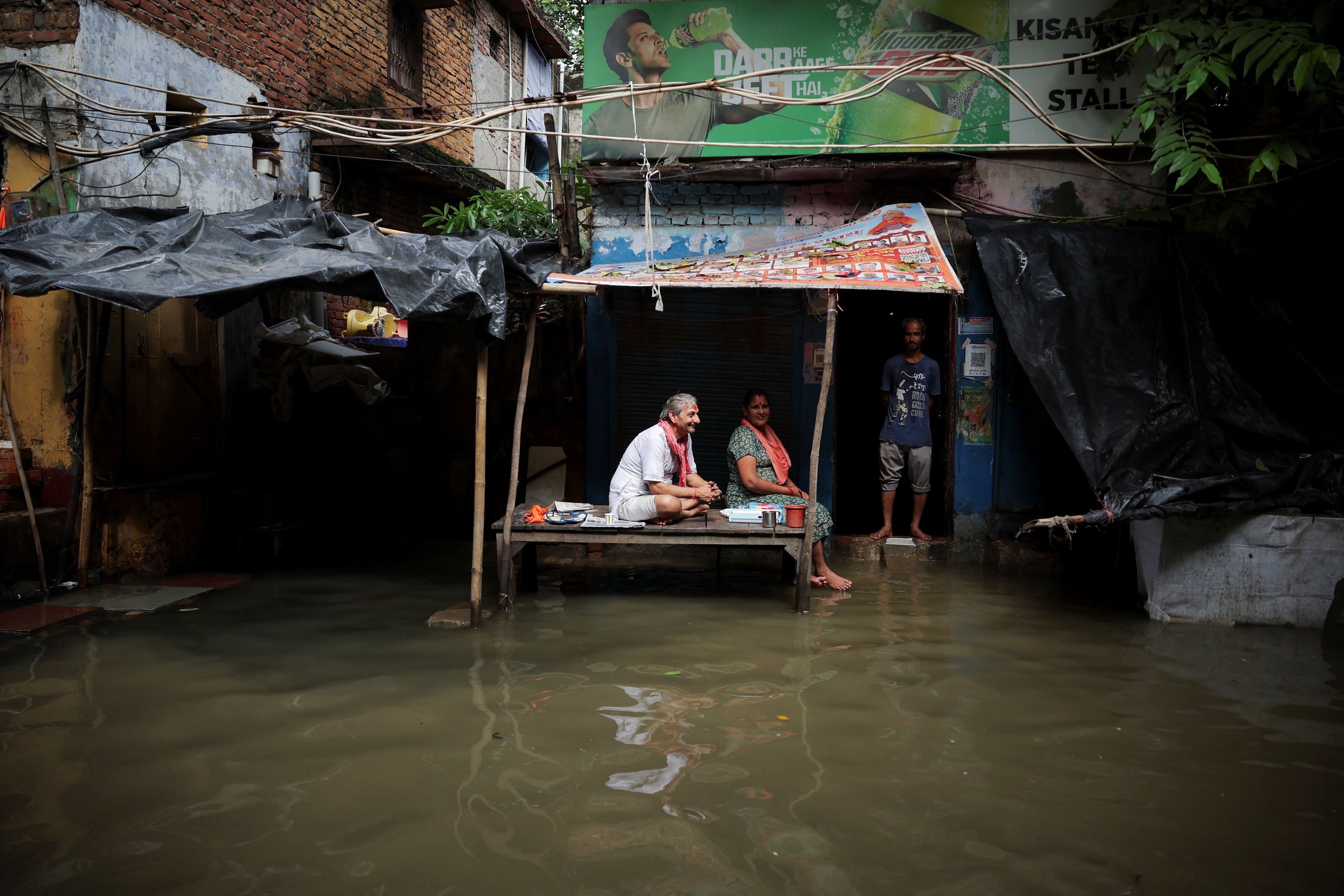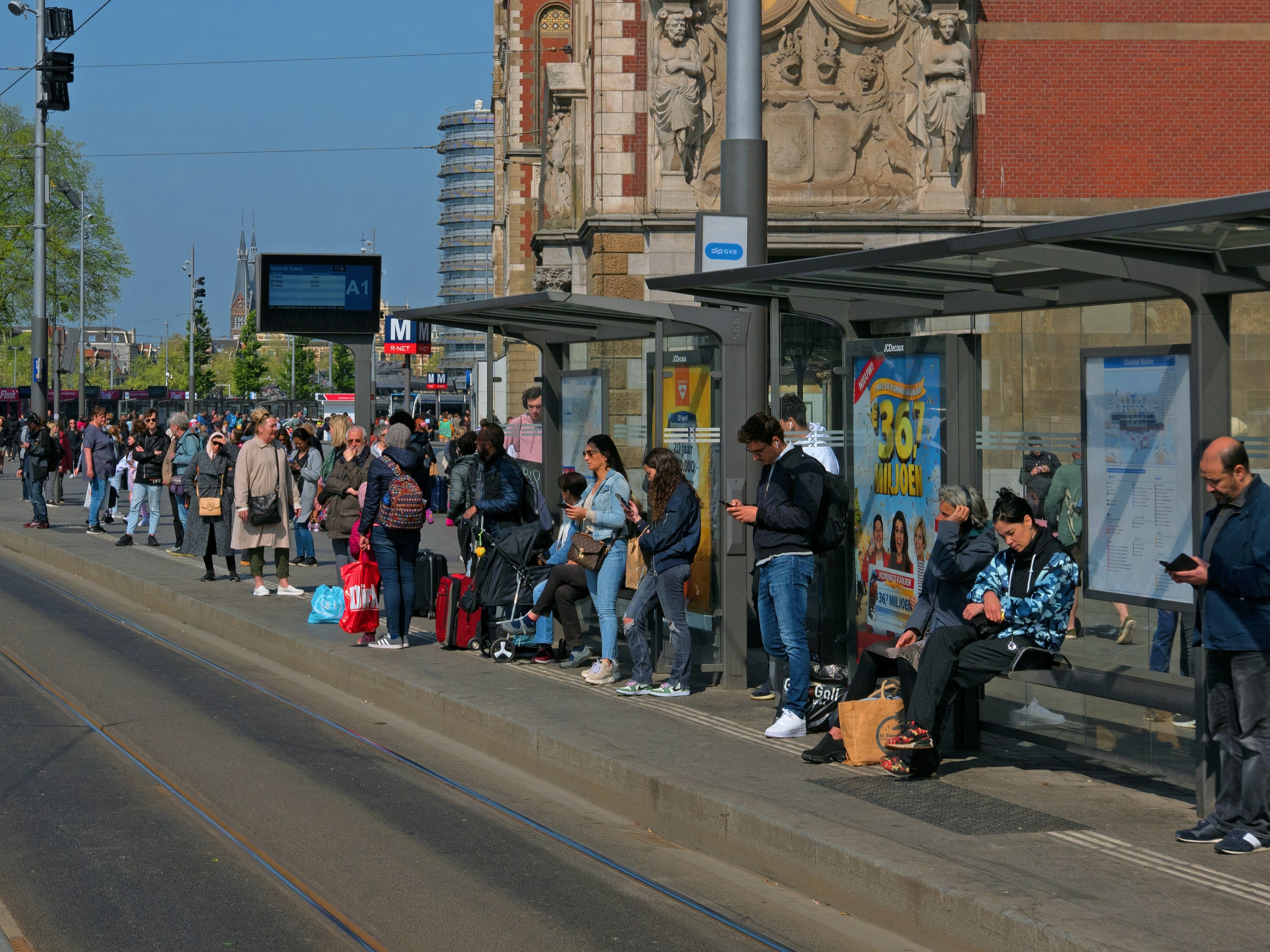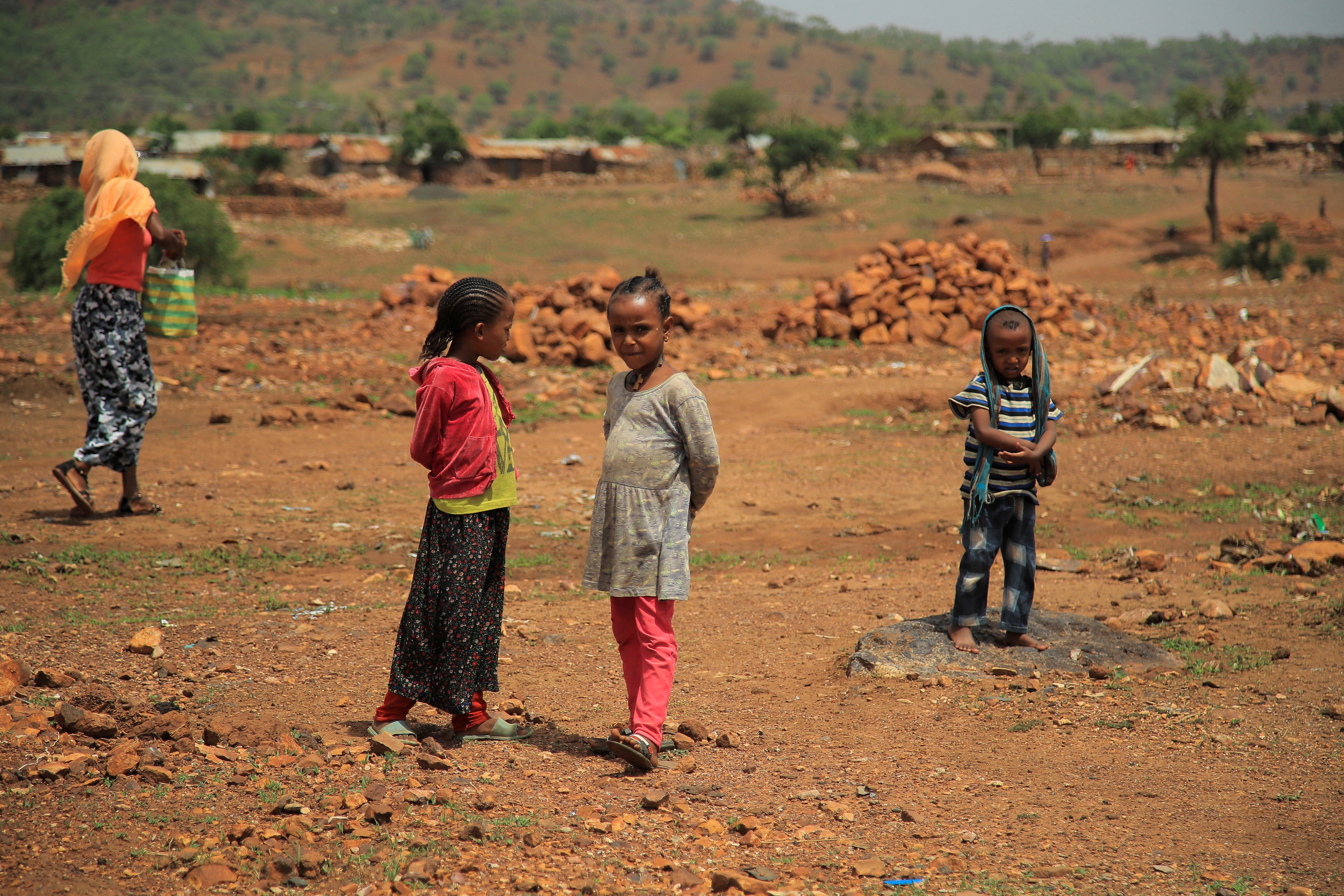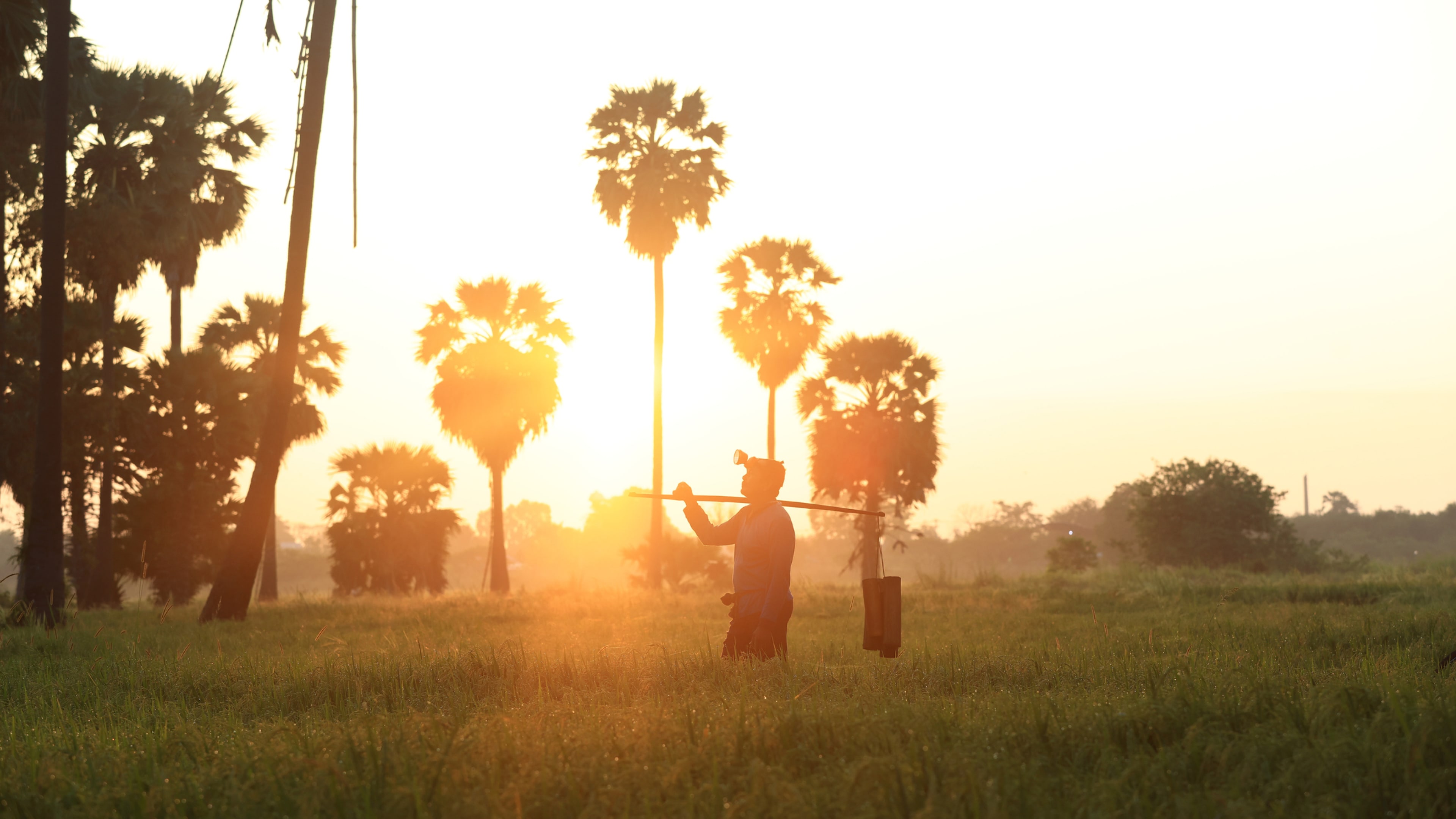Towards peace and security: priorities for the next UN Secretary-General

Image: REUTERS/Mike Segar
Over the past year we have been celebrating 70 years of the United Nations and indeed, there is much to be proud of and grateful for. Over the past year alone, Member States adopted an ambitious development agenda – Agenda 2030 – as well as the landmark Paris Agreement on climate change, a process in which I was honoured to play a role. These agreements demonstrate, once again, the power and the value of the UN when its Member States are united in purpose.
At the same time, the world is facing complex challenges that the UN’s founders could have scarcely imagined 70 years ago. As our societies have grown more interconnected, so have our problems. The global migration and refugee crisis has demonstrated that armed conflict, environmental degradation and human rights violations in one part of the world can have repercussions across the world. We are already witnessing the effects of climate change, the impacts of which are being felt most acutely by the poorest societies that are least able to cope. We have also been made painfully aware that terrorism knows no borders and that violent extremists are increasingly adept at exploiting power vacuums, instability and discontent to spread hatred and destruction.
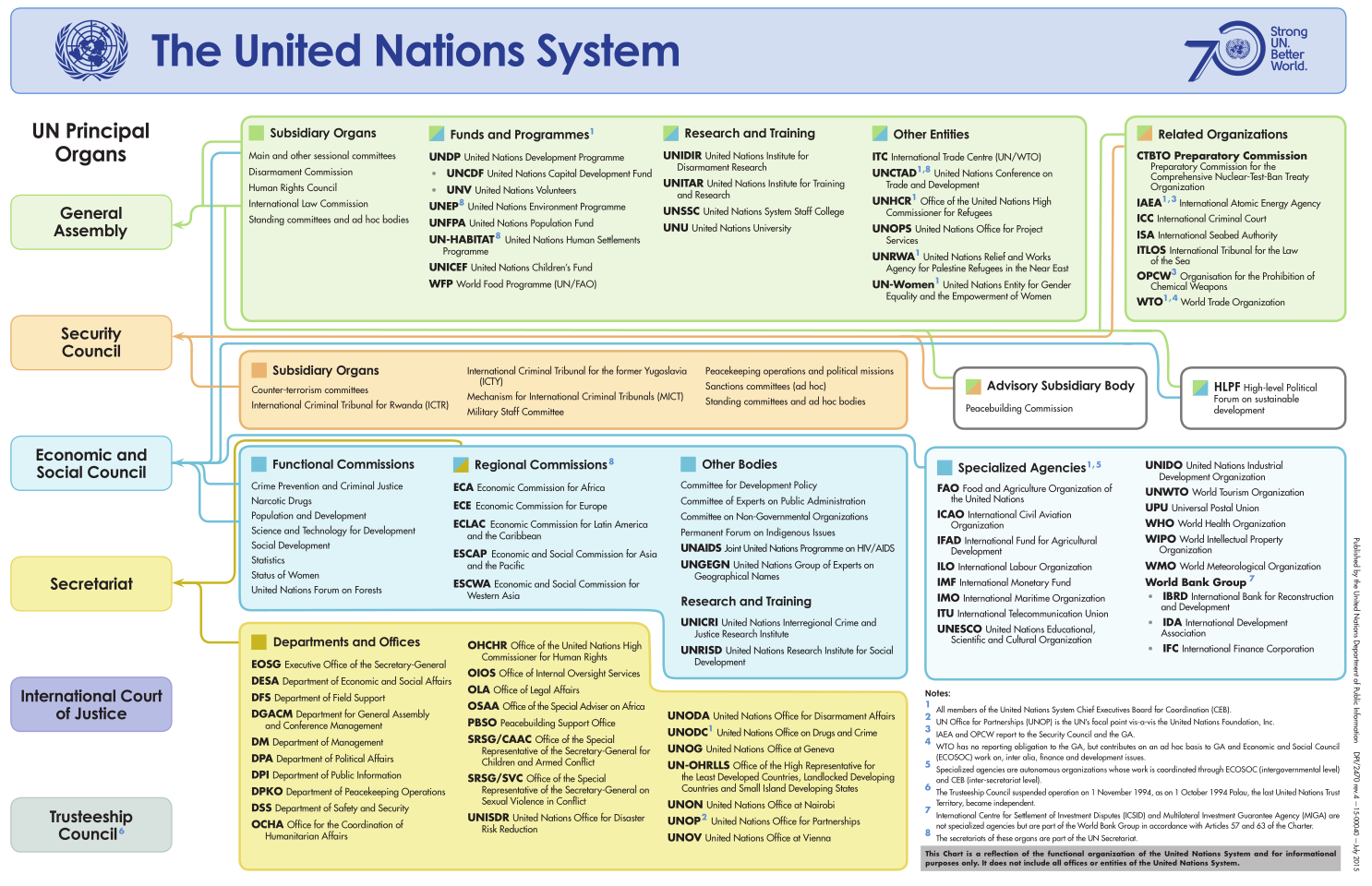
It is evident that we can no longer afford to deal with such challenges in an isolated manner or ignore the full range of their impacts – social, political, environmental and economic. Doing so risks inflaming vicious cycles of conflict. The only way to take on these challenges is by working collectively; either we figure out ways of winning together, or we will all lose together.
In these complicated times, and in a fraught and shifting geopolitical environment, the United Nations remains the indispensable organization that can bring the world around the table to formulate collective responses to shared challenges. Even as these challenges grow increasingly complex, Member States continue to turn to the UN as the universal forum to build consensus and unity in the face of daunting obstacles. But in order to deliver on its crucial responsibilities in a fast-moving world, the UN as an institution has to evolve. This requires visionary leadership and creativity to adapt the way we think, the way we engage, and the way we work.
For the UN to take on the global challenges of the 21st century, I believe the next secretary-general should focus on four broad priorities in the field of peace and security.
First, conflict prevention and strengthened political engagement must be brought to the forefront of the UN’s agenda. This is not a new idea –three major reviews of the UN’s peace and security architecture over the past year have reiterated this point. The UN secretariat needs to be more creative in presenting to the Security Council the full spectrum of instruments we have at our disposal to prevent and de-escalate conflicts, from special envoys, regional political offices and political missions, to peacebuilding support efforts and specialized, interdisciplinary teams that can provide host governments with focused support. The UN should also use its greatest assets – its convening power and legitimacy – to be more active at bringing together stakeholders to negotiate political settlements and resolve conflicts before violence erupts.
Additionally, we must remember that conflict prevention requires sowing the seeds of long-term peace through development and prosperity. Agenda 2030 highlights the old truth that there is no peace without sustainable development – and no sustainable development without peace.
A second priority should be promoting full integration of UN system-wide efforts. Too often the UN’s political, developmental and human rights efforts are functioning at cross-purposes. This must stop. The multi-dimensional challenges we face require multi-dimensional thinking and action. We must overcome institutional inertia and instil a culture of systemic collaboration and inter-disciplinary thinking appropriate for the interconnected world we live in. The new secretary-general and their team should find innovative ways of harnessing the full capacities of the UN system, including the agencies, funds and programmes to be able to tackle issues on all fronts. This also requires undertaking renewed efforts to promote better internal governance, transparency and accountability. And we must heed the call from both Member States and UN staff to adapt our bureaucratic processes to be more agile and effective, and better respond to evolving realities in the field.
Third, the UN must become a better partner. Regional and sub-regional organizations such as the African Union, European Union, Arab League, the Association of Southeast Asian Nations and others play a critical role in conflict resolution and prevention. We must recognize that other actors are sometimes better placed to react more rapidly and effectively. In such cases, we should work together with these organizations to identify the ways the UN can best support and enable regional efforts. And our approach should be grounded in a spirit of mutual respect and recognition of comparative advantages.
Finally, the next secretary-general should redouble diplomatic engagement with Member States, particularly the Security Council, through closer and more regular interaction aimed at finding and expanding points of consensus. While the Council has been criticized for its handling of the Syrian crisis, we must recognize that it found common ground on the destruction of Syria’s chemical weapons and on authorizing cross-border humanitarian access. Even in the most seemingly intractable conflicts, there is room for agreement on issues of common interest, and the secretary-general should use their diplomatic arsenal and creativity to facilitate consensus among Member States, even when consensus seems impossible.
Indeed, a universal agreement to combat climate change seemed impossible only a few years ago. But through persistent, hopeful leadership and old-fashioned multilateral diplomacy –the UN’s raison d’être and greatest strength – we were able to make the impossible possible. I am confident that together we can do the same for the multitude of challenges we face today. Billions of people around the world affected by conflict, poverty and hardship are counting on us. We cannot fail them.
Don't miss any update on this topic
Create a free account and access your personalized content collection with our latest publications and analyses.
License and Republishing
World Economic Forum articles may be republished in accordance with the Creative Commons Attribution-NonCommercial-NoDerivatives 4.0 International Public License, and in accordance with our Terms of Use.
The views expressed in this article are those of the author alone and not the World Economic Forum.
Stay up to date:
Drivers of War
Forum Stories newsletter
Bringing you weekly curated insights and analysis on the global issues that matter.
More on Resilience, Peace and SecuritySee all
Shoko Noda and Kamal Kishore
October 9, 2025

